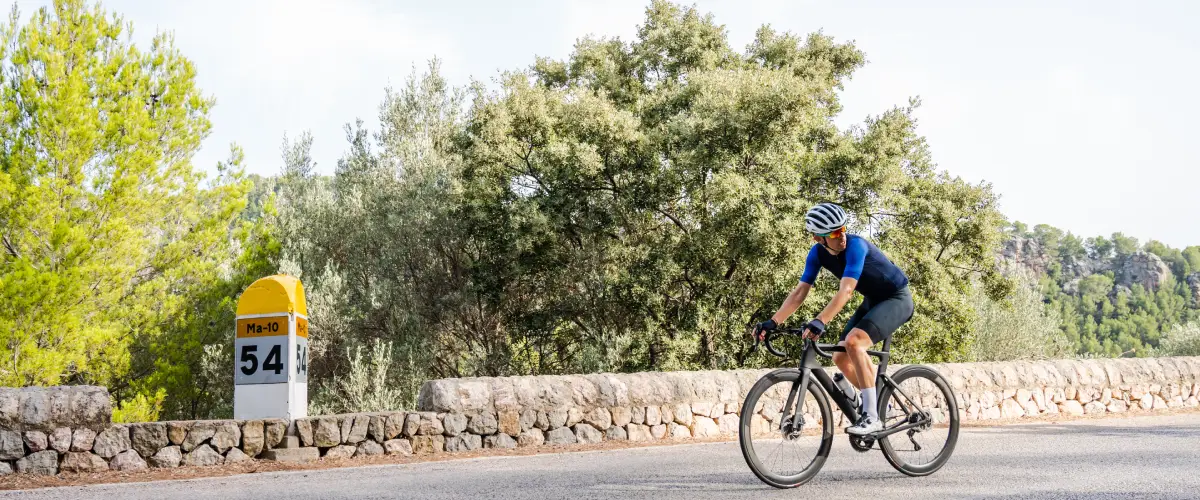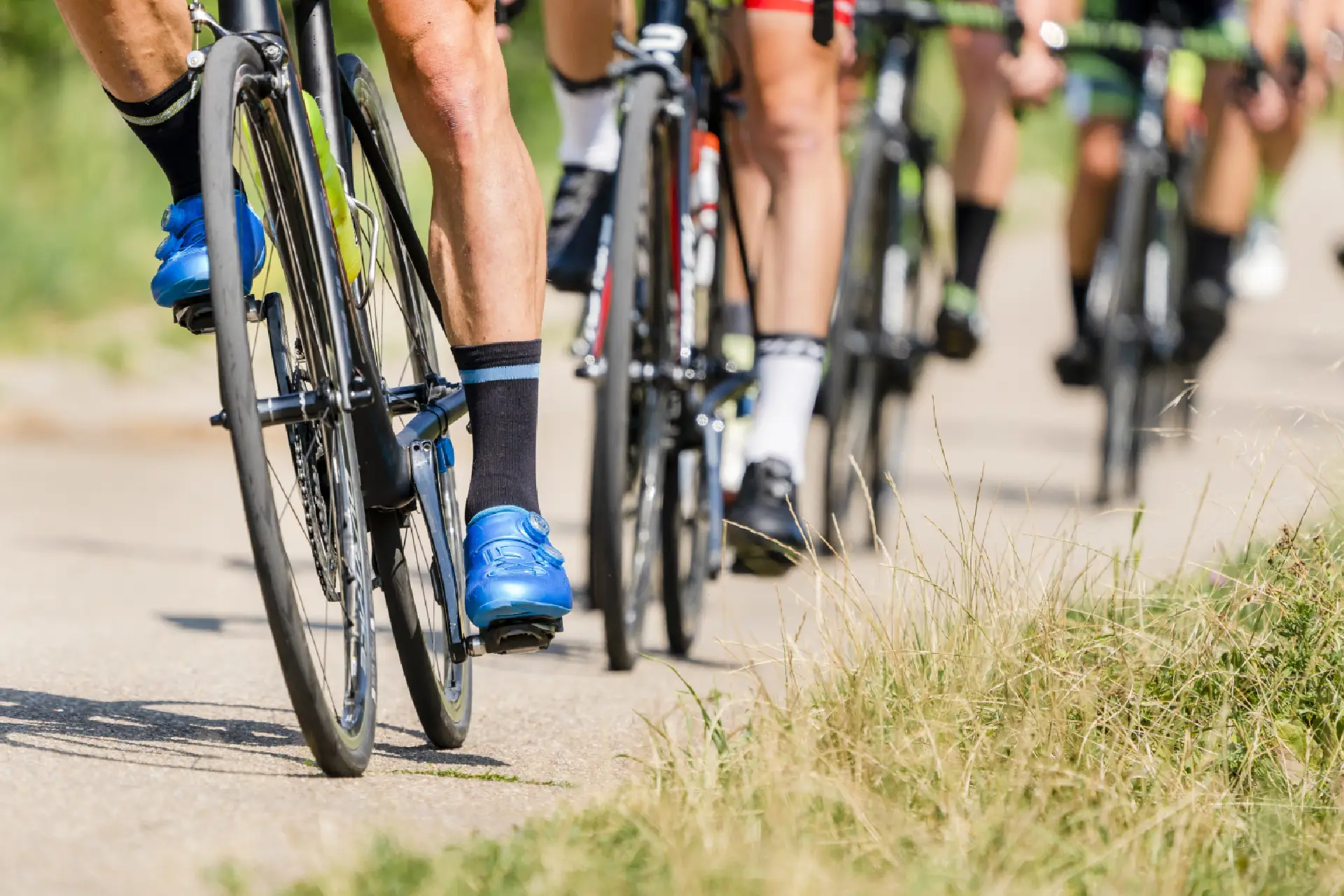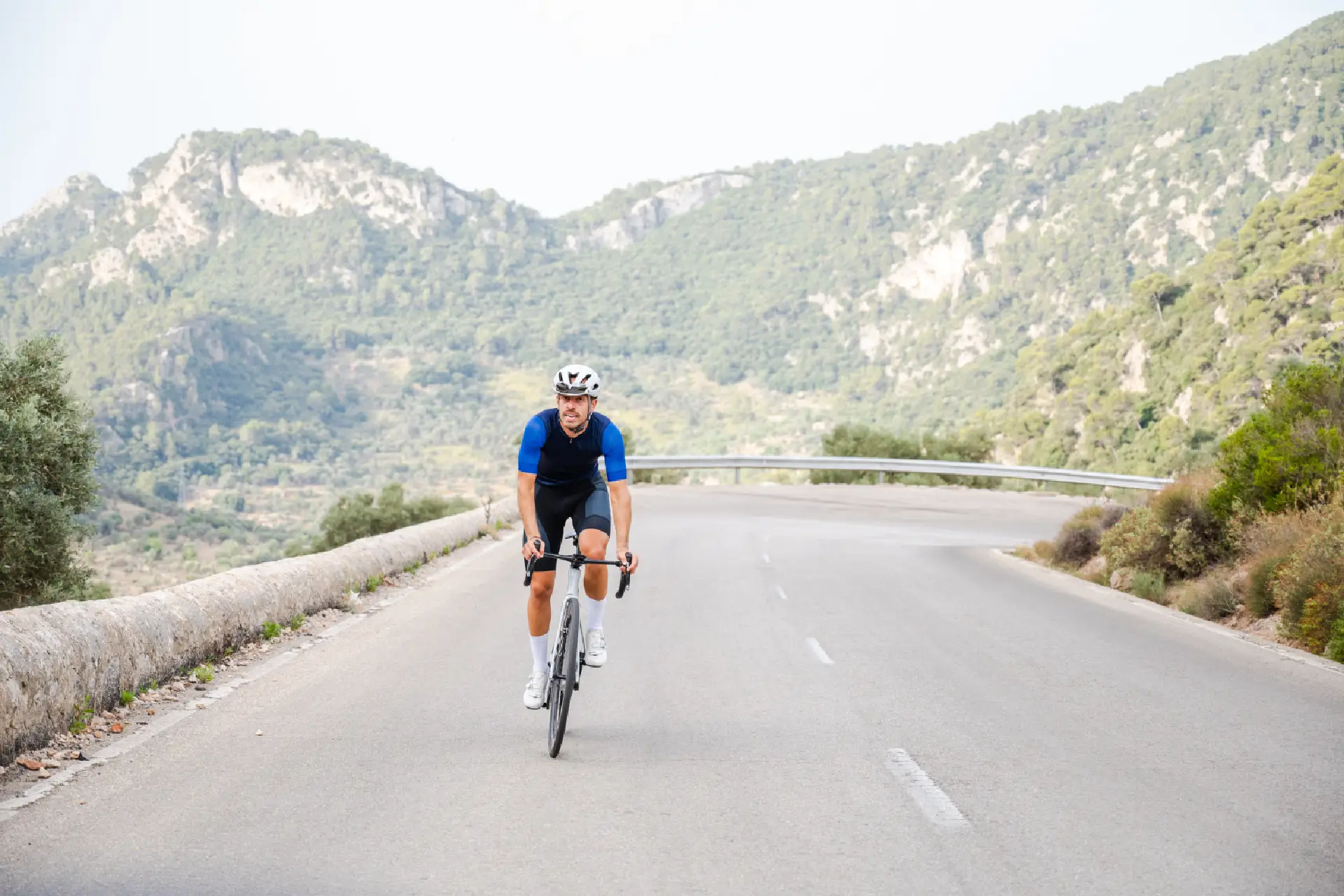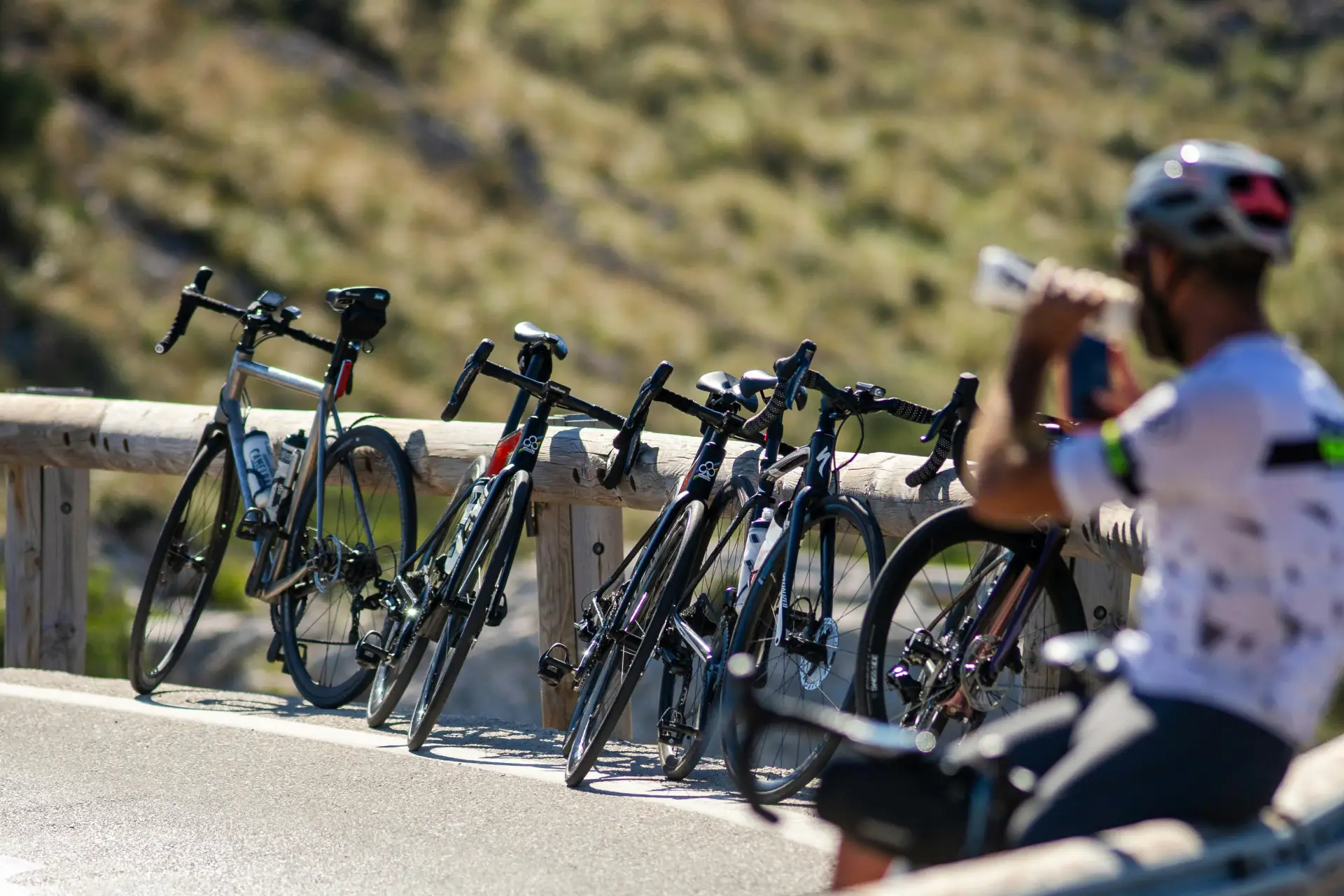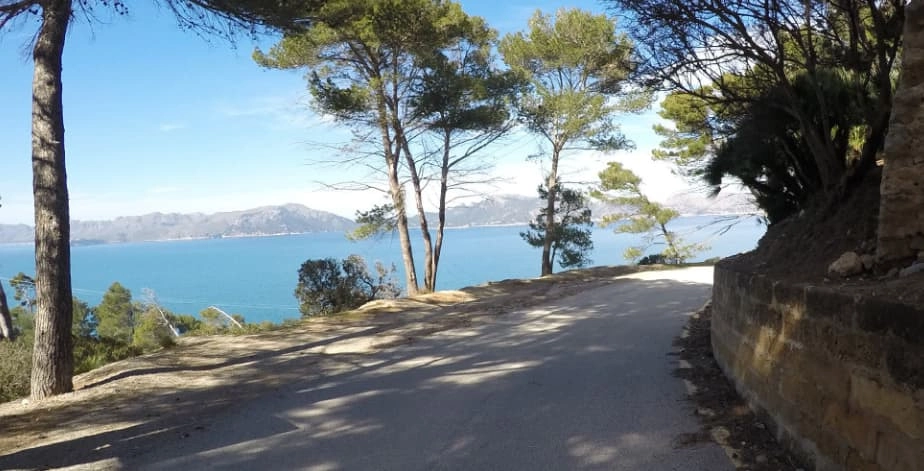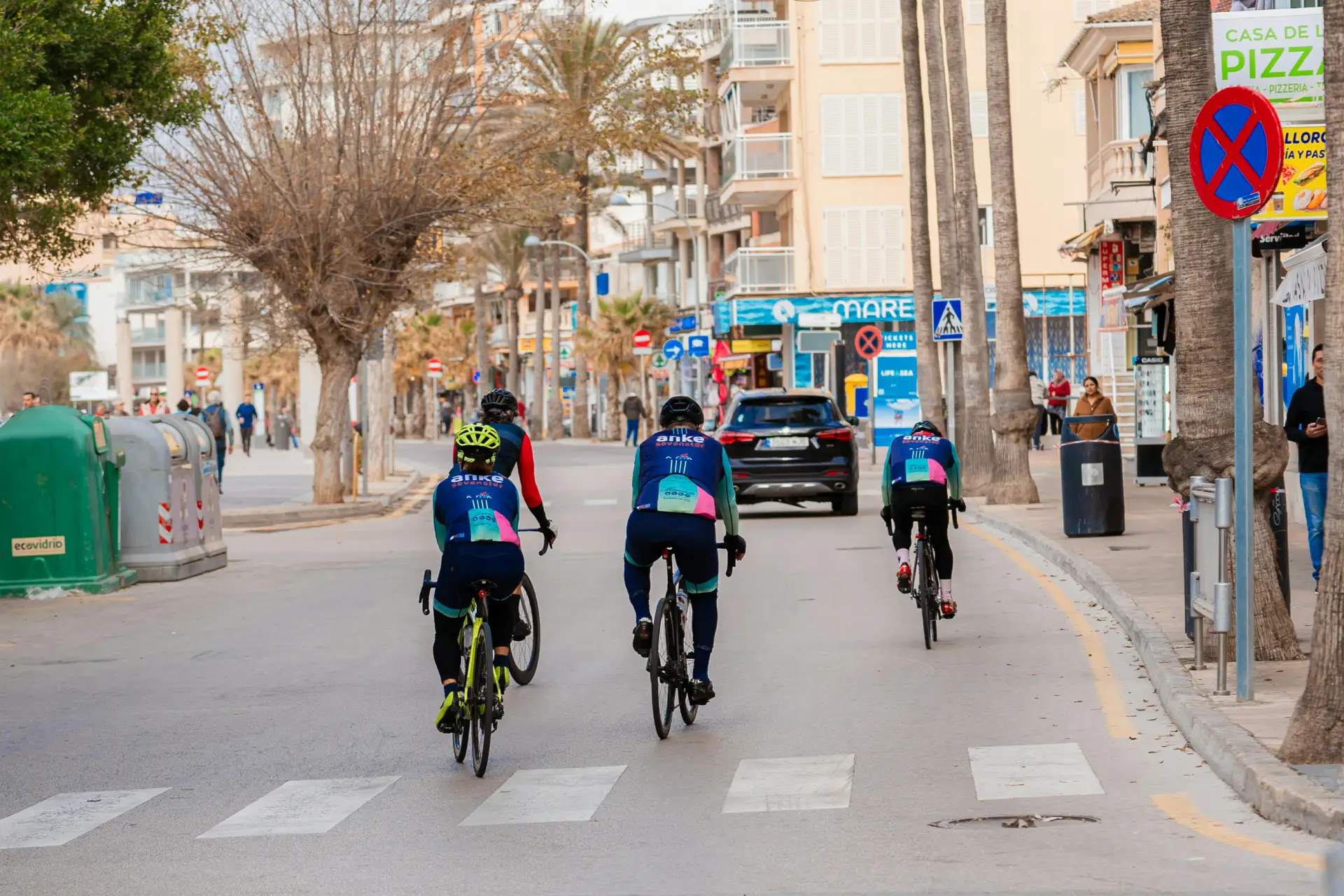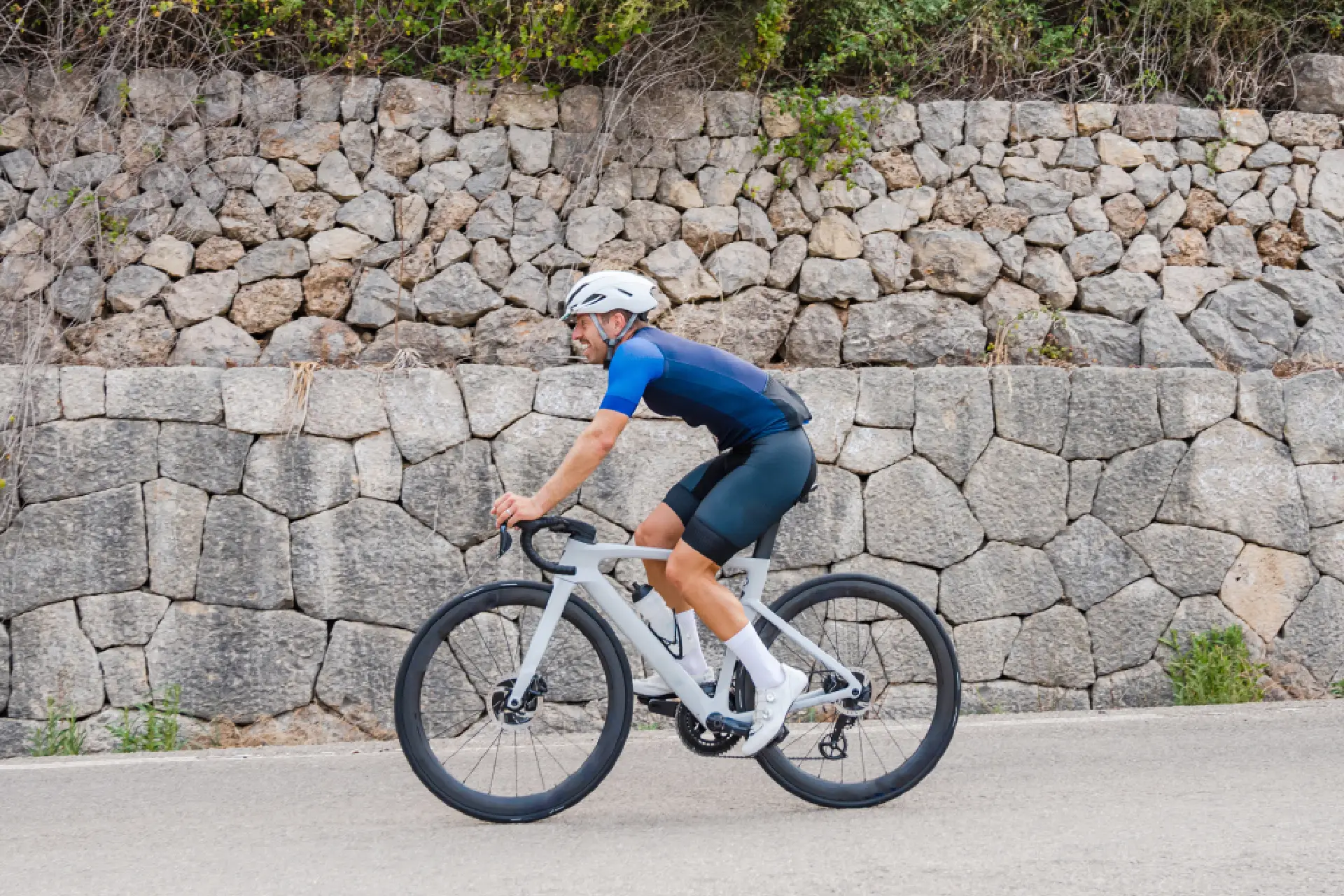¿Do you dare to conquer 390 kilometres of pure adventure? Mallorca bike tour is an epic challenge that combines more than 7,000 metres of accumulated height gain with some of the most spectacular scenery in the Mediterranean.
Como apasionados ciclistas de Cycling in Mallorca, we know that this Tour of Mallorca is not for beginners. In fact, its 5/5 physical and 6/7 technical difficulty rating makes it a challenge for experienced cyclists. However, the flexibility of being able to complete it in 4, 5 or 6 stages allows you to adapt it to your level and preferences.
In this definitive guide, we'll explain everything you need to know to prepare for your adventure: from the most challenging sections of the Serra de Tramuntana to the best coastal routes, as well as practical tips for each stage of the route.
The Serra de Tramuntana, the mountain challenge
The Tramuntana mountain range represents the biggest mountain challenge on your cycling tour of Mallorca. This impressive mountain range, declared a UNESCO World Heritage Site, stretches for 90 kilometres across the northwest of the island. Aparthotel Duva & Spa in Puerto Pollensa is the ideal starting point to conquer the Tramuntana.
Legendary ports: Sa Calobra, Coll de Sóller and Puig Major
Sa Calobra is undoubtedly the jewel in the crown. Its 10 kilometres with an average gradient of 7% and ramps that in some cases exceed 20% on the horseshoe bends make it a must-see. On the descent you will come across the famous "Nudo de la Corbata", a spectacular 360º curve. The peculiarity of Sa Calobra is that you must first go down and then go up, a reverse challenge that tests your endurance.
Puig Major is the longest harbour on the island with more than 14 kilometres and a constant gradient of 6%. Ascending from Sóller, you will pass by the reservoirs of the Gorg Blau and Cúber, a unique experience for your senses.
Coll de Sóller with its 6 kilometres at a gradient of 5%, was for decades the only connection between Sóller and Palma. Now, after the construction of the tunnel, it is practically free of cars, making it a conquered terrain for cyclists.
Charming villages in the Serra de Tramuntana: Valldemossa, Deià and Sóller
Valldemossa will captivate you with its narrow cobbled streets and old houses with green woodwork. La Cartoixa, a monastery founded in the 14th century on the site of the former residence of the kings of Mallorca, is well worth a stop. In addition, its famous potato cakes from the Ca'n Molinas oven are perfect for recovering your strength.
Deià, Nestled between mountains and fruit orchards, it is considered by many to be the most beautiful village in Mallorca. It has been a haven for artists and writers for decades.
Sóller, located in a valley of orange trees, stands out for its impressive façade of the Church of San Bartolomé and the building of the Bank of Sóller, both bearing the mark of Gaudí's disciple, Joan Rubio i Bellver.
Consejos para afrontar los tramos más exigentes
- Manage your forces: Take advantage of the "breaks" on less steep slopes, especially in passes such as Son Font where you will appreciate the 7% sections between ramps of over 11%.
- Constant hydration: The effort on the climbs requires proper hydration, especially in the warmer months.
- Appropriate development: For Sa Calobra, a mountain bike is essential.
- Plan your stops: The villages of the Sierra offer excellent places to recuperate and enjoy the cultural landscape.
Mallorca bike tour on the north and east coast
After overcoming the mountainous challenges, the north and east coast of Mallorca welcomes you with a completely different scenery. The coastal roads offer ideal cycling routes for all levels and preferences, with landscapes that will take your breath away as you pedal along the Mediterranean Sea.
From Puerto Pollensa to Artà: breathtaking coastal scenery
From our Aparthotel Duva & Spa in Puerto Pollensa, we always recommend the route from Puerto Pollensa to Artà (52.77 km), which combines an elevation gain of 338 metres with unbeatable panoramic views. Along the way, you'll skirt the stunning Bay of Alcúdia with its crystal clear waters to your left and the rugged cliffs of the Península de Llevant Natural Park to your right.
As you progress, you will find gems such as the Arenal de Sa Canova, with its valuable dune system, and the Na Patana beach, which curiously allows the presence of dogs. In addition, the stretch has comfortable cycle paths that allow you to enjoy the scenery without worries.
Eastern beaches: Cala Ratjada and Porto Cristo
The circular route between Cala Ratjada and Porto Cristo (34.41 km) is perfect for combining cycling and refreshing swims. This stretch of easy technical difficulty and a positive difference in height of 300 metres allows you to discover coves such as Cala Bona, Cala Millor and S'Illot.
Porto Cristo, with its charming fishing port, offers excellent gastronomic options to recharge your batteries. For its part, Cala Ratjada will surprise you with its beaches of crystalline waters, ideal for a refreshing swim.
Southern routes, flat terrain and challenging winds
In contrast to the mountains in the north, the south of Mallorca offers mostly flat terrain which, although less physically demanding, presents its own challenge: the wind. These stages are perfect for recovering from the mountain passes while enjoying a different type of landscape.
Route from Portocolom to Colonia Sant Jordi
The coastal route from Portocolom to Colonia Sant Jordi offers you a route of approximately 24 km with gentle slopes that are manageable for any level. The stretch to Cap de Ses Salines stands out as a favourite, rewarding you with unspoilt coastline and stunning views of the lighthouses at the southern end. The route combines a gentle descent on the approach and a manageable climb on the return.
As you cycle through this area, you'll find roads that alternate between cobbled sections with slight climbs and descents, and flatter ones where you can increase your speed. Beaches such asEs Carbó and Des Caragol will offer you the opportunity to cool off in crystal clear waters during your tour.
Strategies for dealing with wind on flat stages
The wind is the cyclist's greatest enemy in these flat areas, especially the Levante wind. To deal with it effectively:
- Use relays when travelling in a group; the difference between using them and not using them is significant.
- Maintain a steady and constant cadence, without forcing the speed, similar to when climbing a mountain pass.
- Improve your aerodynamics by adopting a more inclined posture on the handlebars, but do not force yourself too much to avoid injury.
- Always wear goggles to prevent the constant wind from causing eye fatigue and headaches.
Your cycling tour of Mallorca goes beyond just pedalling. In our blog Mallorca en Bici we know that complementary experiences enrich every kilometre cycled. That's why we suggest some stops and activities that will make your trip an unforgettable memory.
Local gastronomy for cyclists
Mallorcan cuisine is the perfect fuel to get your strength back. The Celler La Parra in Puerto Pollensa offers traditional dishes such as frito mallorquín and sopas mallorquinas at reasonable prices, although we recommend booking as it is usually full.
For those who drive along the road from Palma to Manacor,Es Cruce is an obligatory stop. Affordable prices and authentic Mallorcan food, such as pa amb oli, are perfect before resuming your route. Another option close to the area to try typical Mallorcan food is the Restaurant Buffet Ses Torres.
If you are in the inland area of Mallorca we recommend that you make a stop at the cycling cafes, located in villages in the heart of Mallorca such as Sineu or Alaró.
Frequently asked questions Mallorca bike tour
What is the typical duration of a Mallorca bike tour?
The Mallorca bike tour covers approximately 390 kilometres and can be completed in 4, 5 or 6 stages, depending on the level and preferences of the cyclist. The total duration varies according to individual planning and the stops made along the route.
What are the most challenging sections of the route?
The most challenging sections are in the Tramuntana mountain range, especially the mythical passes such as Sa Calobra, with 10 km at an average gradient of 7%, Puig Major with more than 14 km at 6%, and the Coll de Sóller. These segments require good physical and technical preparation.
What type of terrain is found in the south of the island?
The south of Mallorca has mostly flat terrain, ideal for recovering from mountainous stretches. However, the main challenge in this area is the wind, especially the Levante wind, which can complicate pedalling on the flatter stages.
Are there options for combining cycling and sightseeing during the tour?
Yes, the Mallorca Bike Tour offers numerous opportunities to combine cycling and tourism. You can visit charming villages such as Valldemossa, Deià and Sóller, enjoy the local gastronomy in traditional restaurants, and make stops at emblematic places such as Palma Cathedral or Bellver Castle.
What specialised services are available for cyclists at Aparthotel & Spa Duva?
From Aparthotel Duva & Spa we have a wide range of services for cyclists such as: Bicycle garage with video surveillance, bike rental, equipment rental, washing area, mechanical workshop, washing machine and dryer, water bottle, specialised shop for cyclists, free access to the Spa, training camps, sports massages, transport service for groups, guide service for groups, spinning room, personal trainers, gym, information on routes, and special diets.
